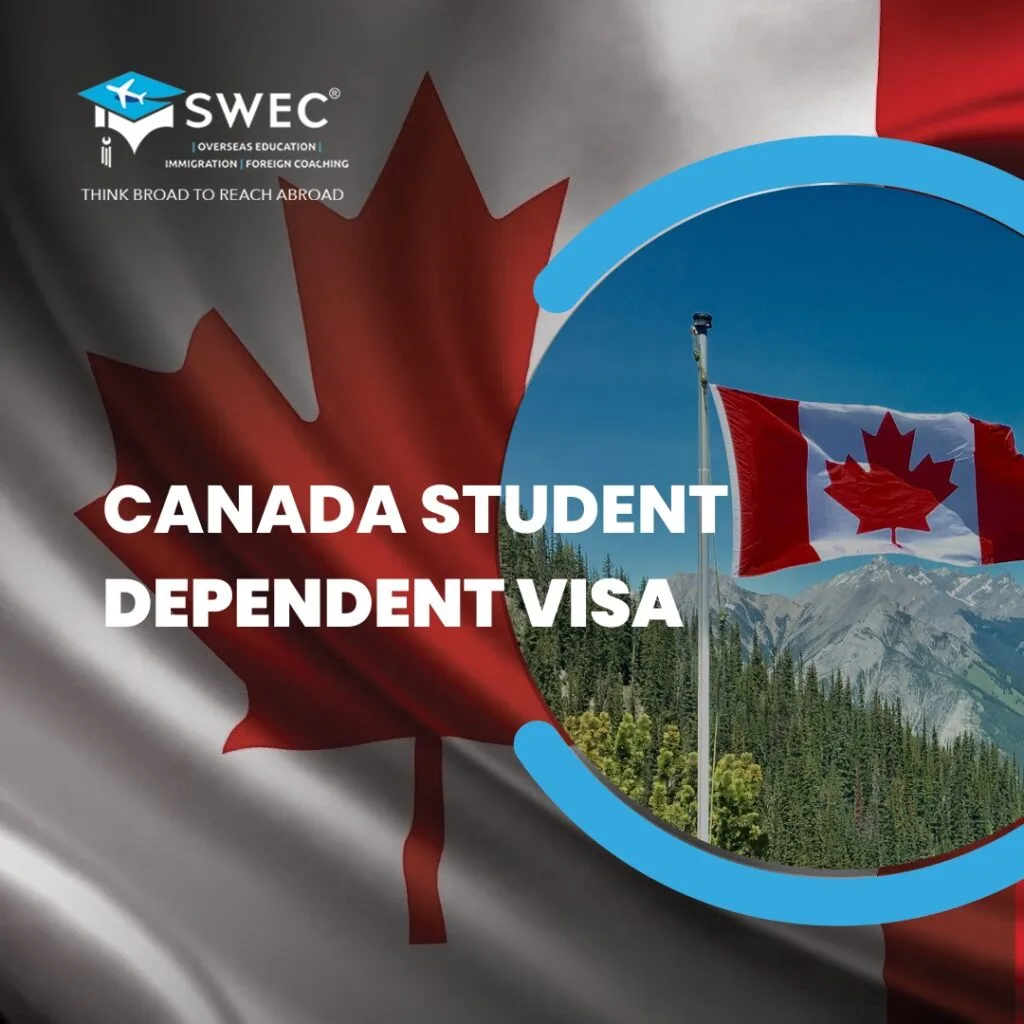Are you planning to reunite with your Canadian spouse or partner? The Canada Spouse Visa is your pathway to a new life together in Canada. With a successful spouse visa application, you can reunite with your partner and build a future together in Canada. Learn about the requirements for a Canada spouse visa, including proving a genuine relationship, providing financial support, and meeting health and security standards. This guide explains everything you need to know about applying for a spouse visa for Canada from India.
What is a Spouse Visa?
The Canada Spouse Visa, part of the Family Class immigration program, allows Canadian citizens and permanent residents to sponsor their spouses or partners for permanent residency. This guide will help you understand the different relationship categories eligible for sponsorship.
Difference between Spouse, Common-Law Partner, and Conjugal Partner
Before diving into the details of the Canada Spousal Sponsorship Program, it’s important to understand how Immigration, Refugees, and Citizenship Canada (IRCC) defines each relationship category:
1. Who is Considered a Spouse in Canada?
- Age: Must be 18 years or older.
- Gender: Can be of any gender.
- Marriage Status: Must be legally married to a Canadian citizen or permanent resident.
- Validity:
- Marriages conducted within Canada are automatically recognized for spousal sponsorship.
- If married outside Canada, the marriage must be valid according to the laws of the country where it occurred and also comply with Canadian federal law.
- Same-sex marriages performed abroad are recognized under Canadian law but may require proof if the marriage isn’t valid under the laws of the country where it took place. If not valid, you might need to apply as a common-law or conjugal partner instead.
2. Who is a Common-Law Partner in Canada?
- Age: Must be 18 years or older.
- Gender: Can be of any gender.
- Marriage Status: Not legally married to the Canadian citizen or permanent resident.
- Cohabitation: Must have lived together continuously for at least 12 months in a marriage-like relationship.
3. Who is a Conjugal Partner?
- Age: Must be 18 years or older.
- Gender: Can be of any gender.
- Marriage Status: Not legally married to the Canadian citizen or permanent resident.
- Relationship Duration: Must have been in a genuine relationship for at least 12 months.
- Living Situation: Typically lives outside Canada.
- Exceptional Circumstances: The relationship must be affected by significant barriers, such as legal restrictions, immigration issues, or inability to marry or cohabit due to circumstances beyond their control.
- Proof Required: Demonstrate emotional connection, shared finances, mutual support, and efforts to be together despite the barriers.
Who is Eligible for Sponsorship?
To be eligible for sponsorship, your relationship must fall under one of these categories:
- Spouse: Legally married to a Canadian citizen or permanent resident.
- Common-Law Partner: Lived with your partner in a conjugal relationship for at least one continuous year.
- Conjugal Partner: Been in a committed relationship for at least one year but unable to live together due to specific circumstances.
By sponsoring your eligible partner, you’re inviting them to build a life with you in Canada.
Important Note: Immigration rules can change. Always consult with our Expert Spouse visa consultant for the most accurate and up-to-date information.
Who’s Eligible to Sponsor?
Bringing your spouse or partner to Canada isn’t always a simple process. Both you and your partner need to meet certain requirements to qualify for a spouse visa.
Sponsor Eligibility
Canadian Citizenship or Permanent Residency: You need to be a Canadian citizen or a legal permanent resident of Canada.
Minimum Age: You must be at least 18 years old.
Residency: You can’t sponsor someone if you’re living permanently outside of Canada.
Social Assistance: You must prove that you’re not receiving social assistance unless it’s for a disability.
Undertaking: You must agree to financially support and take care of the basic needs of the person you’re sponsoring for three years.
Income Requirement: Generally, there’s no income requirement for a spouse visa unless your spouse has a dependent child who also has children. In such cases, you need to earn at least CAD 25,920 per year.
Spouse or Partner Eligibility
Minimum Age: Your spouse or partner must be at least 18 years old.
Documentation: They must have all necessary immigration documents, such as identity, education, marriage or legal partner documents, and completed application forms.
Medical and Character Requirements: They need to pass medical exams and meet character requirements.
Biometrics: They must complete the biometrics process.
Situations Where You Cannot Sponsor
Existing Undertaking: If you’re already sponsoring a previous spouse or partner and their undertaking period of three years is still active, you can’t sponsor another person.
Social Assistance Default: You can’t sponsor if you previously sponsored someone and didn’t repay the social assistance during the undertaking period.
Immigration Loan or Performance Bond Default: You’re not eligible to sponsor if you have defaulted on an immigration loan or performance bond, or haven’t paid required alimony or child support.
Bankruptcy: If you’ve declared bankruptcy, you cannot sponsor until you’re discharged.
Criminal Record: If you have been convicted of a sexual offense, violent crime, or any other serious offense, you cannot sponsor a spouse or partner.
If you’re unsure about anything, it’s always a good idea to talk to an immigration professionals of ours. We can guide you through the process and make sure you have everything in order.
Advantages Of Obtaining A Canada Dependent Visa
Obtaining a Canada Spouse Visa offers numerous benefits, making it an attractive pathway for those seeking to join their spouse or partner in Canada. Here are the detailed advantages of this visa:
Unconditional Permanent Residency
The primary benefit of a Canada Spouse Visa is that it grants the applicant unconditional permanent residency in Canada. This allows the sponsored spouse or partner to live, work, and study anywhere in Canada without any time limitations.
Simple Requirements
The requirements for the sponsor and the applicant are less stringent compared to other immigration pathways. This ease of requirements makes the application process more straightforward and less stressful.
No Points System
Unlike many other Canadian immigration programs, the spouse visa does not use a points or merit system to determine eligibility. If you meet the necessary requirements, you will be granted the visa, making the process more transparent and predictable.
No IELTS Requirement
One significant advantage is that there is no need to prove English language proficiency through tests like IELTS. This omission simplifies the process, reduces costs, and speeds up the application.
Faster Processing Time
The Canada Spouse Visa process is relatively quick. Applicants can expect to complete the entire process within one year, allowing families to reunite faster.
Access to Social Benefits
Successful applicants receive Canadian permanent residency, which includes access to various social benefits. These benefits include free healthcare, family and child benefits, and other social services that enhance the quality of life in Canada.
Employment Opportunities
Upon arrival in Canada, spouses can apply for an open work permit. This permit allows them to work for any employer in Canada without restrictions, significantly increasing job opportunities and aiding in financial stability.
Education and Career Advancement
Permanent residents can take advantage of Canada’s world-class education system and career advancement opportunities. They can enroll in educational programs and pursue professional development to enhance their skills and career prospects.
Stability and Security
Permanent residency provides long-term stability and security, allowing families to plan their future in Canada with confidence. This status also opens the pathway to Canadian citizenship after fulfilling the residency requirements.
What Are the Eligibility Criteria To Apply For A Spouse Visa in Canada?
To apply for a spouse visa in Canada, also known as the Spouse or Common-Law Partner in Canada Class, you must meet certain eligibility criteria. These criteria include:
- Relationship Status: You must be legally married to or in a common-law relationship with a Canadian citizen or permanent resident. Canada recognizes both opposite-sex and same-sex marriages.
- Genuine Relationship: You must demonstrate that your relationship is genuine and not entered into solely for the purpose of obtaining immigration benefits.
- Minimum Age: Both you and your spouse must be at least 18 years old.
- Legal Status of Sponsor: Your spouse must be a Canadian citizen or permanent resident who is willing to sponsor your immigration to Canada.
- Ability to Support: Your spouse must demonstrate that they can financially support you and any dependents during your time in Canada.
- Admissibility: You and any accompanying family members must be admissible to Canada. This means you must not have a criminal record, serious health issues, or be considered a security risk.
- Medical Examination: You and any accompanying family members may need to undergo a medical examination to ensure you meet Canada’s health requirements.
- Processing Fees: There are fees associated with applying for a spouse visa in Canada, including application processing fees and any fees for medical examinations.
- Documentation: You will need to provide various documents as part of your application, including marriage certificates, evidence of the genuineness of your relationship, and proof of financial support.
- Language Proficiency: Depending on the circumstances, you may need to demonstrate proficiency in English or French, Canada’s official languages.
What Documents Do You Need for a Spouse Visa to Canada?
When applying for a Spouse Visa for Canada, you’ll need to gather several important documents. Here’s what you’ll need:
- Marriage Certificate or Common-Law Partner Document: Provide a copy of your marriage certificate or, if you’re in a common-law relationship, proof of that partnership.
- Passport Photos: Include recent passport-sized photos of both you and your spouse.
- Proof of Legal Name Change: If either you or your spouse has changed your name legally, include documents that show this change.
- Valid Passport: You’ll need to submit a copy of your valid passport, and your spouse will need to do the same.
- Birth Certificate: Provide your birth certificate, and if applicable, your spouse’s birth certificate as well.
- Original Sponsorship Letter: This letter should detail your commitment to support your spouse financially during their stay in Canada.
- Financial Documents: Include documents that show you can financially support your spouse, such as bank statements, pay stubs, or tax returns.
- Police Clearance Certificate (if needed): If required, provide a police clearance certificate to confirm that you or your spouse have no criminal record.
- Termination Papers for Previous Marriage (if applicable): If either you or your spouse were previously married, include documents proving that marriage has ended.
Make sure all your documents are accurate and up-to-date. If any documents are not in English or French, they’ll need to be translated.
Steps To Apply For A Canada Spouse Visa From India
Alright, so if you’re looking to apply for a Canada Spouse Visa from India, there are a few steps you’ll want to follow to make sure everything goes smoothly.
Step 1: Check Eligibility and Gather Documents
- Ensure both you (the sponsor) and your spouse meet the eligibility criteria for the spousal sponsorship program.
- Collect all necessary documents according to the checklist provided by immigration authorities.
Step 2: Complete the Application
- Fill out the required application forms: IMM 1344, IMM 5532, and IMM 0008.
- Provide accurate details in the undertaking questionnaire to confirm your commitment to support your spouse financially.
Step 3: Pay Application Fees
- Pay the total application fee of CAD 1050. This includes:
- Sponsorship Fee: CAD 75
- Principal Applicant Fee: CAD 475
- Right of Permanent Residence Fee: CAD 500
- If applicable, pay CAD 150 for each dependent child.
- Biometrics fees are CAD 85 per person or CAD 170 per family.
- Payments can be made through the online portal, and you will receive a receipt.
Step 4: Submit Your Application
- Compile all your documents and completed application forms.
- Send your application by mail to:
- By Regular Mail: CPC Sydney, P.O. Box 9500, Sydney, NS, B1P 0H5
- By Courier Service: CPC Sydney, 49 Dorchester Street, Sydney, NS, B1P 5Z2
Step 5: Additional Documents and Medical Exam
- If requested, undergo a medical exam within 30 days of receiving the request.
- Submit any additional documents if asked by Canadian immigration.
Step 6: Interview (If Required)
- You may be asked to attend an interview. You’ll receive details about the date, time, and location.
- Be prepared to discuss your relationship with the sponsor, education, migration reasons, future plans, and other relevant topics.
Step 7: Decision and Approval
- A visa officer will review all submitted documents.
- After a thorough evaluation, the panel will make a decision on your spouse’s visa application.
If you’re ever unsure about anything, don’t hesitate to Contact Us for help and guidance.
Canada Spouse Visa Processing Time
Currently, it looks like it might take somewhere between 7 to 9 months to process. But hey, remember, that’s just a ballpark figure. The actual timeline could swing a bit depending on a few things like:
- How intricate your application is
- The accuracy and completeness of your documents
- Whether they need any more info or want to chat with you further
For the most accurate info, your best bet is to keep an eye on the Canadian government’s website: https://www.canada.ca/en/immigration-refugees-citizenship/services/application/check-processing-times.html.
This site gives you the lowdown on the current processing times based on where you’re applying from and where you plan to settle in Canada.
Conclusion
Navigating the process of obtaining a spouse visa for Canada can seem complex, but understanding the requirements and steps involved can make it much easier. Whether you’re a Canadian citizen or permanent resident looking to bring your spouse or partner to Canada, it’s essential to be informed about the eligibility criteria, required documentation, and processing times. By preparing thoroughly and ensuring all your paperwork is in order, you can increase your chances of a successful application and a smooth reunification with your loved one.
If you’re ready to start your journey or have any questions about the spousal sponsorship process, don’t hesitate to reach out to us for expert advice and assistance. Let us help you make your dream of living together in Canada a reality!
Frequently Asked Questions (FAQs) Canada Spouse Visas
Q1. How long does a spouse visa take in Canada?
Ans1. The processing time for a Canadian spouse visa typically ranges from 12 to 24 months. The exact duration can vary based on individual circumstances and application volume.
Q2. Who is eligible for a spouse visa in Canada?
Ans2. To be eligible for a spouse visa, you must be married to a Canadian citizen or permanent resident. Both you and your spouse must meet specific eligibility criteria, including being at least 18 years old and proving the genuineness of your relationship.
Q3. How much money is required for a spouse visa in Canada?
Ans3. The application fee for a Canadian spouse visa is CAD 1,050, which includes CAD 75 for sponsorship and CAD 475 for the principal applicant, plus a Right of Permanent Residence Fee of CAD 500. Additional fees may apply for dependents and biometrics.
Q4. How long is the waiting time for a spouse visa?
Ans4. The waiting time for a spouse visa can range from 12 to 24 months, depending on factors like application completeness and the processing backlog.
Q5. How can I bring my spouse to Canada?
Ans5. To bring your spouse to Canada, you need to apply for spousal sponsorship. This involves submitting an application to Immigration, Refugees and Citizenship Canada (IRCC) along with required documents and fees.
Q6. What is the approval rate for a spouse visa in Canada?
Ans6. The approval rate for spouse visas in Canada is generally high if all requirements are met. However, specific rates can vary year to year based on processing changes and individual cases.
Q7. Can I get PR if my spouse is Canadian?
Ans7. Yes, if you are sponsored by your Canadian spouse, you can obtain Permanent Residency (PR) in Canada.
Q8. What is the minimum income to sponsor a spouse in Canada?
Ans8. There is no specific income requirement for sponsoring a spouse unless your spouse has dependent children. In such cases, the minimum income required is CAD 25,920 per year.
Q9. What are the new rules for Canada spouse visa 2024?
Ans9. The rules for spousal visas can change, so it’s crucial to check the latest updates from IRCC for any new requirements or processes for 2024.
Q10. Do you need IELTS for a spouse visa Canada?
Ans10. No, IELTS or any English language proficiency test is not required for a spouse visa application.
Q11. How much bank balance is required for Canada visa?
Ans11. There is no specific bank balance requirement for a spouse visa unless additional financial support is needed for dependent children.
Q12. What is the new marriage law in Canada?
Ans12. Recent changes in marriage laws in Canada may affect the validity of marriages performed abroad. For the latest updates, consult IRCC or legal resources.
Q13. How long is a spouse visa interview?
Ans13. Spouse visa interviews typically last between 30 minutes to an hour, depending on the complexity of the case and questions asked.
Q14. Can you speed up a spouse visa?
Ans14. While you cannot expedite the processing time of a spouse visa, ensuring that all documents are complete and accurate can help avoid delays.
Q15. Can both husband and wife go to Canada?
Ans15. Yes, both spouses can move to Canada if one is the primary applicant for the spouse visa.
Q16. Is Canada allowing spouse visa?
Ans16. Yes, Canada continues to offer spouse visas as part of its family reunification programs.
Q17. Is an interview required for a Canada spouse visa?
Ans17. An interview may be required as part of the application process, depending on the specific circumstances of the case.
Q18. What is the cost of a spouse visa in Canada?
Ans18. The total cost for a spouse visa application is CAD 1,050, with additional fees for dependents and biometrics if applicable.
Q19. Can I sponsor my wife to Canada?
Ans19. Yes, you can sponsor your wife to Canada if you are a Canadian citizen or permanent resident and meet the sponsorship requirements.
Q20. Can I work in Canada if I marry a Canadian?
Ans20. Yes, if you are granted a spouse visa and are in Canada, you are eligible to work under the terms of your visa.
Q21. Can I sponsor my husband to Canada without a job?
Ans21. Yes, you can sponsor your husband without a job, but you must prove that you can financially support him and meet other sponsorship requirements.
Q22. What is the new update for spouse visa in Canada in 2024?
Ans22. For the most current updates on spouse visa rules for 2024, consult the latest information from IRCC or a visa consultant.
Q23. What is the success rate of spousal sponsorship in Canada?
Ans23. The success rate for spousal sponsorship in Canada is generally high, provided that the application meets all requirements and is complete.
Q24. Will Canada stop giving PR after 2025?
Ans24. There are no current indications that Canada will stop offering PR. For the latest information, keep an eye on updates from IRCC.
Q25. Did Canada stop the spouse visa?
Ans25. No, Canada has not stopped issuing spouse visas. The program is still active and available for family reunification.
Q26. Which course is eligible for a spouse visa in Canada?
Ans26. Spouse visas are not linked to specific courses. They are meant for family reunification, regardless of the educational courses or programs your spouse may undertake.
Q27. Is a spouse visa better than a PR in Canada?
Ans27. A spouse visa grants PR status, so they are essentially linked. The spouse visa allows you to live and work in Canada as a permanent resident.
Q28. Is marriage certificate required for Canada dependent visa?
Ans28. Yes, a marriage certificate is required to prove the relationship for a dependent visa.
Q29. Can I work in Canada with spouse visa?
Ans29. Yes, a spouse visa allows you to work in Canada once you are granted PR status.
Q30. How much funds are required for a Canada spouse visa?
Ans30. The application fee is CAD 1,050, with additional costs for dependents and biometrics.
Q31. Who is eligible for spousal sponsorship Canada?
Ans31. Canadian citizens and permanent residents who meet specific eligibility criteria can sponsor their spouse or partner.
Q32. Who is not eligible to sponsor a spouse in Canada?
Ans32. Individuals who are bankrupt, in default on an immigration loan, or have a criminal record may be ineligible to sponsor a spouse.
Q33. Can a Canada spouse visa get rejected?
Ans33. Yes, a spouse visa application can be rejected if the requirements are not met or if there are issues with the application.
Q34. What is the current processing time for a spouse visa?
Ans34. The current processing time for a spouse visa ranges from 12 to 24 months.
Q35. Is Canadian PR a lifetime?
Ans35. Yes, Canadian PR is generally considered permanent, but you must meet residency requirements to maintain it.
Q36. What is the new rule of Canada PR?
Ans36. The rules for PR can change, so it’s important to check the latest updates from IRCC for any new regulations.
Q37. What are the new rules for spouse in Canada?
Ans37. For the latest rules regarding spouse visas, refer to updates from IRCC, as regulations can change.
Q38. Can a wife take her husband to Canada?
Ans38. Yes, a wife can sponsor her husband to come to Canada if she meets the eligibility criteria.
Q39. Can both husband and wife work in Canada?
Ans39. Yes, once both spouses are in Canada, they can both work if they have the appropriate visas or permits.
Q40. How long does it take for a spouse visa to Canada?
Ans40. The processing time for a spouse visa to Canada is typically between 12 to 24 months.
Q41. How long is the spouse visa valid for in Canada?
Ans41. The spouse visa is valid as long as the PR status is maintained, with initial validity typically extending to the first few years of residency.
Q42. What percentage of spouse visas are approved in Canada?
Ans42. The approval rate for spouse visas is generally high if all criteria are met, though exact percentages can vary.
Q43. Who is eligible for a spousal visa in Canada?
Ans43. Canadian citizens and permanent residents who meet the eligibility requirements and can prove their relationship can apply to sponsor their spouse or partner.
Q44. Which documents are required for a Canada spouse visa?
Ans44. Required documents include marriage certificates, valid passports, proof of financial support, police clearance certificates, and more, as detailed in the application checklist.






